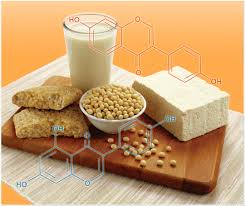A study from the University of Guelph, Canada found that isoflavones and peptide contained in soybean can inhibit microbial pathogens that cause the disease are transmitted from food.
Isoflavones are substances derived from plants that contain estrogen are often found in nuts. While Peptides are molecules formed from two or more amino acids that number below 50 molecules.
"The use of isoflavones and soy peptides to reduce microbial contamination could benefit the food industry, which today typically use synthetic additives to protect food," said Director of the Laboratory of the University of Guelph Professor BioNano Neethirajan Suresh Engineering, Science Daily quoted as saying on Monday (25/4) local time ,
The study uses microfluidics and screening of high level in the run millions of tests in a short time. In trials, they found that soy may be more effective antimicrobial agent than synthetic chemicals such as those used today.
Moreover, because the chemicals are known to have long-term adverse effects on the human body.
Neethirajan also disclose the use of antimicrobial chemicals may cause some bacteria become highly resistant to these chemicals. So it makes the most of the chemicals that are no longer active to be antimicrobials for food.
While soy isoflavones and peptides can be degraded natural, environmentally friendly and non-toxic it can be a solution as the best antimicrobial.
"It may be promising at a time when antibiotics usually kill bacteria indiscriminately, both pathogenic and beneficial bacteria. Though our bodies need the good bacteria so that we can process food intestine optimally, "he said.
Peptides are part of the protein, and can act as a hormone, a hormone or neurotransmitter producer. While Isoflavones act as hormones and control most of the biological activity at the cellular level.
This time he claimed to have been developing research with larger scale again. He hopes his research can be useful for the food processing industry and also for soybean farmers.
As is known, derivatives (derivative) soy has become a mainstay in food products. Such as cooking oil, cheese, ice cream, margarine, spreadable foods (butter), canned foods and baked goods. But not for the antimicrobial function.

No comments:
Post a Comment